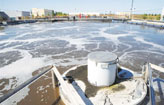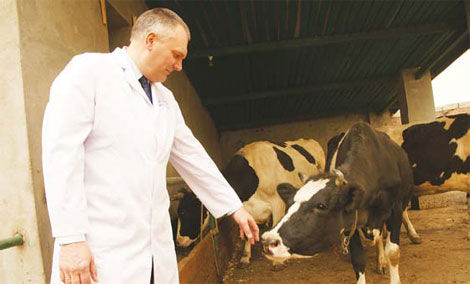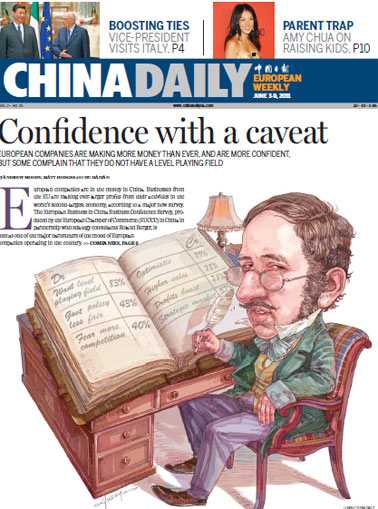Milking it
Updated: 2011-06-03 11:40
(China Daily European Weekly)
Farmers tap into area's dairy advantage as more joint ventures are established
On a sunny Sunday before the summer solstice, farmer Zhao Dongjun heads out to a milking shed in his village's dairy farm in Shuangcheng county of Harbin city.
Zhao, 40, sits on a stool and steadily fills his barrels with fresh milk in the capital of northeastern Heilongjiang province.
Zhao is just one of a number of small farmers who have turned to dairy work after many dairy factories like those of food giant Nestl and Wondersun, a leading Chinese dairy company, set up milk production facilities in Harbin. The companies buy raw milk from local dairy farms.
"The conditions here are very suitable for feeding the cows and we can save a lot of effort," says Zhao, who lives alone on his 0.2 hectare of farmland.
"The cow dung can also be used as organic fertilizer to enrich the soil."
Zhao milks the cows twice a day and can make a profit of about 50,000 yuan (5,395 euros) each year.
For many like Zhang, Harbin's black soil - or chernozem as it is also known - is a gift of nature that many believe offers 10 times the amount of organic material in ordinary yellow soil and is key in producing nutritional milk.
Formed in cool, temperate zones with high organic substances, the soil is considered to be so rich in nutritional properties many say "you can even grow chopsticks in it".
Eldert Heijkoop, the factory manager of the Swiss-Chinese joint venture between Nestl and Shuangcheng Dairy and Food Industry Co, says the establishment of the milk production base in Shuangcheng is the result of Nestle's commitment to the local government and long-term research for local resources including weather, soil quality and water to ensure high quality raw milk.
"The black soil is very fertile and productive for growing feed crops for cows," Heijkoop says.
"The nutritional quality of cow's milk is determined by the health of the cow. Therefore, the nutritional quality of milk depends on the diet of the cow that produces it. Cows naturally graze on grass, but most modern dairy cattle are fed grain and soy, which are the main crops here."
Xu Zongliang, the director of the quality control department in Wondersun, says the city offers many other favorable factors for dairy cattle husbandry as it is located in the world's dairy belt region, on the same latitude with the Netherlands, Denmark and Japan's Hokkaido.
"If a region has comparatively cool climate and sufficient feed supply, its raw milk production also develops fast," Xu says. "Heilongjiang has such conditions to make it a high milk yield zone."
Heilongjiang, where the Songnen and Sanjiang plains also combine to form one of the world's three black soil belts, has supplied more than 1 trillion kg of grain since the founding of the People's Republic of China in 1949.
With an investment of $57.6 billion (40 billion euros), the province plans to increase the annual grain yield to 50 billion kg and develop 11 modern agriculture model zones by the end of 2012.
Currently, there are 65 million hectares of grassland, growing high quality and nutritious grass and crops considered ideal for developing animal husbandry.
The Shuangcheng Nestl factory produced about 80,000 tons of finished milk products a year, using 390,000 tons of fresh milk collected from 164 milk collection centers with about 2,500 farmers.
Last year, the total revenue of the company amounted to 315 million yuan. But Nestl has more ambitious targets, which entail an almost doubling of infant formula. It is already eyeing extensions to the plant.
Heijkoop says expansion is fueled by a market of 1.3 billion people who are increasingly affluent customers developing a taste for milk.
"Realizing the advantages of their land, many farmers find dairy farming more attractive than working in the field - which is good for us," Heijkoop says.
|
|
E-paper

Tapping into the future
Foreign companies are investing in China's water industry as many predict a growing profit margin.
Preview of the coming issue
Headhunters ride on growth
Commercial property rides wave
Specials

Cuisine central
London's Chinatown is helping diners appreciate full palate of Chinese food

Tying the knot
Danish couple's high-end macrame export business takes off in the mountains of Yunnan.

Truly a super woman
Li Yuchun first came to prominence in 2005 as the Super Girl winner, and since then has become an international star.

